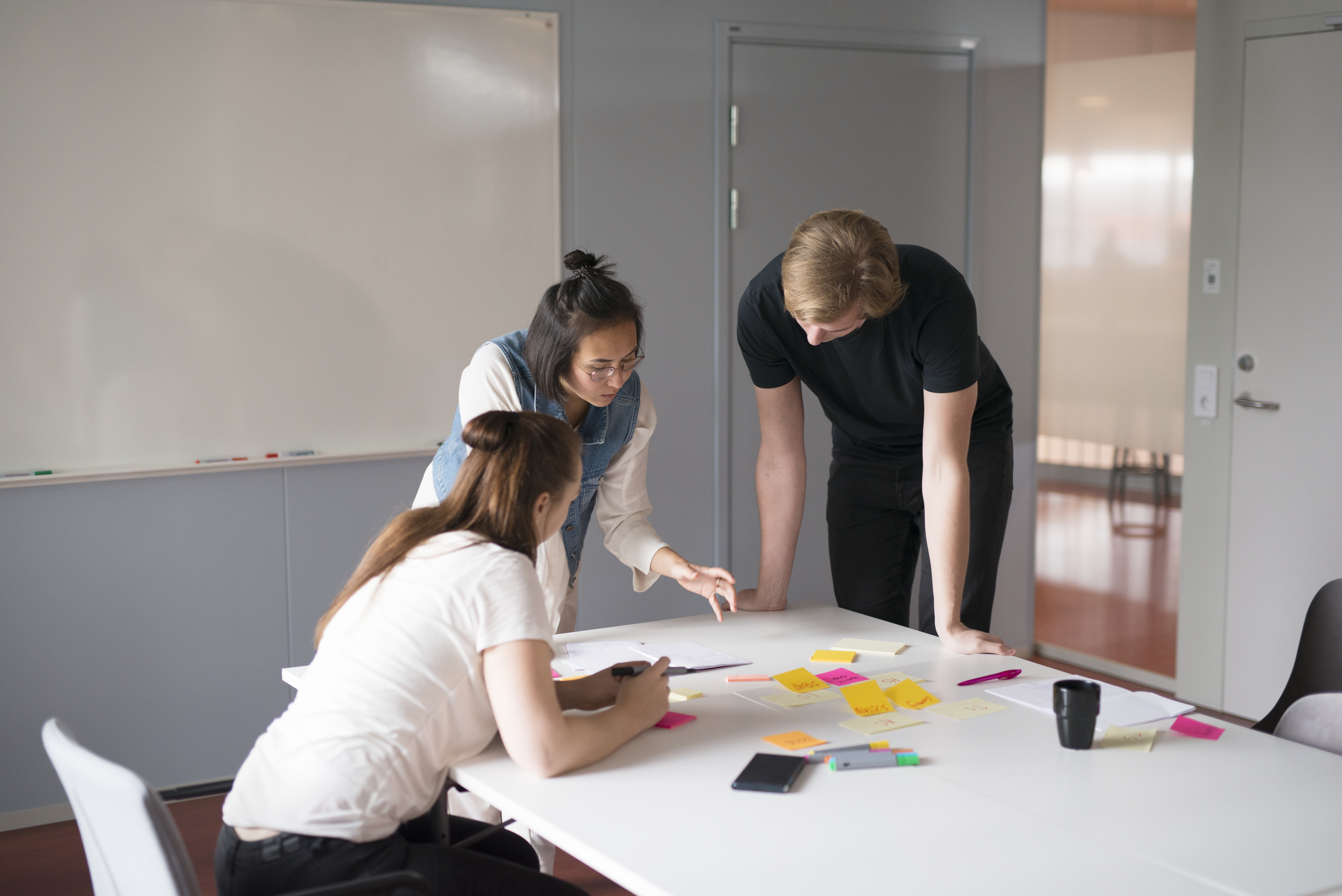Entrepreneur or startup?
Read more
Are you an entrepreneur or a business startup? Have you started up your own business? We’ve gathered masses of good and relevant material for you.

At first glance, the abilities required for success in academia versus entrepreneurship differ a lot. Moving from the field of a PhD researcher to the dynamic life of a startup founder presents a unique set of challenges that demand a shift in mindset and skills.
But are these skills so different after all? And what is the best way to navigate the transition from PhD to startup? For IDAs Career Day for PhDs and Postdocs, we invited Kristian Husum and Esperanza Rivera de Torre who shared their journeys from research to entrepreneurship and provided valuable insights into challenges, successes, and important lessons for those considering the leap from academia to the startup scene.
Here’s what we learned:
Firstly, Esperanza debunked the assumption that being a PhD researcher and a startup founder are complete opposites. She highlighted that many of the skills you learn during your PhD, such as critical thinking, problem solving, networking, patience, and resilience are absolutely vital skills for a startup founder.
However, you will most likely discover new challenges as well. Having to sell and potentially cold call a lot of potential customers is a new, and potentially daunting task for many researchers-turned-founders, as Kristian pointed out.
Just like completing your PhD thesis, creating a startup can be a lonely journey, if you do it by yourself. Esperanza emphasized acknowledging the need for help and the importance of accepting that one cannot do everything alone. She warned against overworking and recommended having a co-founder to maintain balance between startup and research.
Kristian agreed and advised the aspiring founders at the Career Day to spend considerable time with potential team members, before asking them to join the team. He also shared that to him, a co-founder must always pass the “beer test”, meaning that you should not onboard a co-founder who you would not like to share a beer with.
Both founders also recommended using the many resources available to PhD students, at their universities and at startup hubs, specifically those with a deep tech focus.
Besides collecting advice from various sources to build your startup, Kristian stressed the significance of creating a dedicated advisory board. His own advisory board consists of a mix of people from the industry and with experience with investing in startups.
Both Kristian and Esperanza cautioned against giving away too much equity and emphasized that people are generally willing to help without necessarily requiring shares as compensation for advisory roles. Reversely, founders should be cautious about people who want shares or payment up front before a relationship is established.
Kristian Husum´s PhD project, Healthdrone, researched transporting blood samples between the mainland and islands in Denmark and the challenges of obtaining flight approvals and navigating EU drone regulations. This research led to him founding the startup, CODRONE, focusing on ensuring drone safety.
Esperanza Rivera de Torre shared her transition from researching snakebite healing during her PhD to her current venture, Immunite, which focuses on allergy solutions. Her story illustrated the unexpected and innovative paths that research can lead to in entrepreneurship.